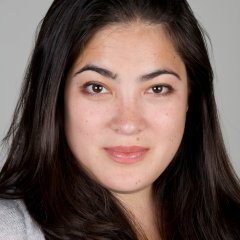Beeline Reader
Watch Solver Jay Newton-Small pitch her initiative, MemoryWell, in May, 2018 at Solve at MIT.
Transcript:
Hi, my name is Jay Newton-Small, and I am CEO and Founder of MemoryWell. We’re a digital platform for senior storytelling.
So, MemoryWell really began with my dad. My dad had Alzheimer’s, and he was diagnosed when I was still a senior in college. I became his primary caregiver for the last five years of his life. A few years ago, I had to move him into a community, and when I did, they asked me to fill out this 20-page questionnaire.
I was sitting there, writing down these answers, thinking: A, these are really hard questions. I was a professional writer with Time Magazine, and I challenge anyone to define their parents’ 40-year marriage in four lines. And then B, who’s ever going to read and remember 20 pages of hand-written data points for their 150 residents there?
So I instead didn’t fill out the form, turned it in blank, and said look, I’m a writer, and I think it’s easier for me and easier for you if you just let me write down his story. They were like, “um… ok you’re weird, but sure.” So I wrote down his story, and they absolutely loved it.
Two of his caregivers were Ethiopian, and they’d had no idea that my dad had actually lived in Ethiopia for four years early on in his career with the United Nations. They became his champions. They would sit for hours and show him their own personal family photos of Addis Ababa and Lalibela, and Dad loved it, because he remembered Africa from his early 20s, even if he didn’t remember last week.
It builds empathy.
MemoryWell really grew from there. Now we have a network of over 500 writers across the country, and we work with assisted living facilities, and home healthcare agencies, and continuing care retirement communities to replace those questionnaires that nobody likes to read and nobody loves to fill out, with beautifully written stories.
We also have a digital platform where then families can build on those stories and add in their loved one’s favorite music, and movies, and arts, and readings. In that way, whoever is sitting with them, whether it’s a paid caregiver or a grandchild, has a whole toolbox of things with which to engage them.
This is really important because right now there’s billions and billions of dollars that go to Alzheimer’s research, which is great. It’s absolutely important. We need a cure, but there is also a huge problem with caregiving in the country right now. The research that we’re doing, let’s face it, given recent drug trial failures, is probably not going to lead to a cure or treatment in time to save the Baby Boomer generation.
We are already short right now more than 1.5 million caregivers in the United States, which leads to shortfalls in the workforce. Communities like my father’s experience more than 55 percent turnover annually of staff. That leads to really disjointed care, it leads to isolation, and it leads to a lot of problems.
So, this is actually getting worse and worse. By the year 2020, we’re going to be short more than 2 million caregivers, and by the year 2030, more than 10 million caregivers. Which means that, just as the last of the baby boomer generation is turning 70, and the need for care will be most acute, the shortage will be the greatest, and therefore the quality of care will be declining.
Now there are plenty of people here at MIT, I’m sure, who are building robots to solve this problem, and that is wonderful. In Japan they’ve done that, and it is amazing, but it doesn’t actually solve the problem of isolation and the problem of connection, which is a large reason why MemoryWell was chosen as one of the recipients of the Arts and Culture Prize here for MIT Solve by Yo-Yo Ma.
That’s because we build connection, and that’s really important. It’s important that people as they age feel connected, are not isolated, and can build bonds and lead quality lives. So we are MemoryWell, and we’re changing aging one story at a time.
Thank you so much.
Jay Newton-Small speaks at the opening plenary during Solve at MIT, May 16, 2018. (Photo: Adam Schultz/ MIT Solve)






